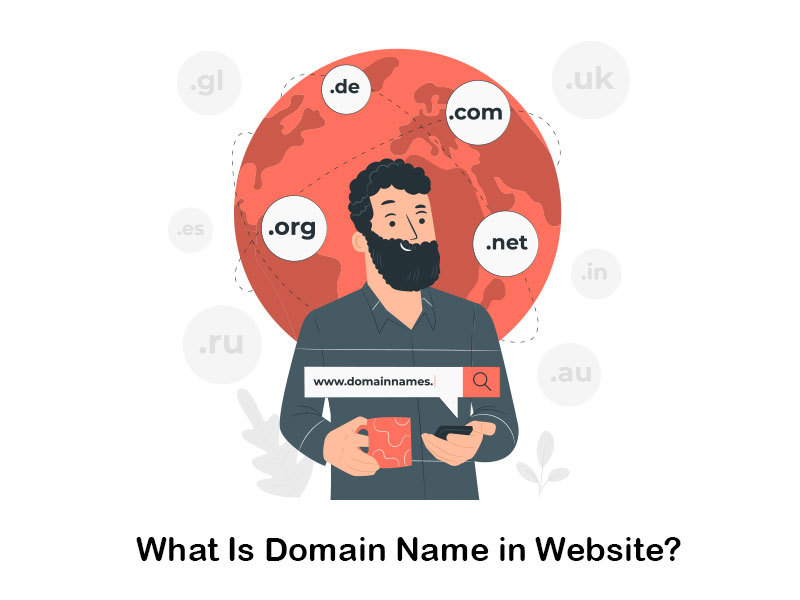If you are a complete beginner in web development or web hosting, you will encounter numerous questions. “What is domain name in website” is one of the most common questions you will deal with. Continue to read, and we will share all details that you need to be aware of a domain name. Then you can decide what a domain name is all about and what you can do with it.
What Is a Domain Name?
Now let’s come to the most critical question, what is a domain, and what does domain mean? A domain name is an address you enter on a web browser to access a particular website. Let’s assume that your website is a house to understand the domain name better. Then the domain name will be the address of your home. we recommend you to read domain vs website article.
The Internet is a massive network made out of millions of websites. All of them are connected via a global network of cables. Hence, each computer on this network will communicate with the other. To do that, every computer has an IP address. This is a series of numbers that indicate a device on the Internet. However, remembering IP addresses is not something that people can do. This is why domain names were introduced. A domain name will mask the IP address and redirect people to the particular IP address. Therefore, you can easily remember the IP address and visit a website.
If you want to know What Is Ip Address in Computer This article can guide you!
How Does Domain Work?
Now you have a basic understanding of what is domain name in website. Let’s explore how a domain name works with that picture in mind. To get a better view of this, you will need to look at the steps on what would happen as you enter a website domain name in the web browser.
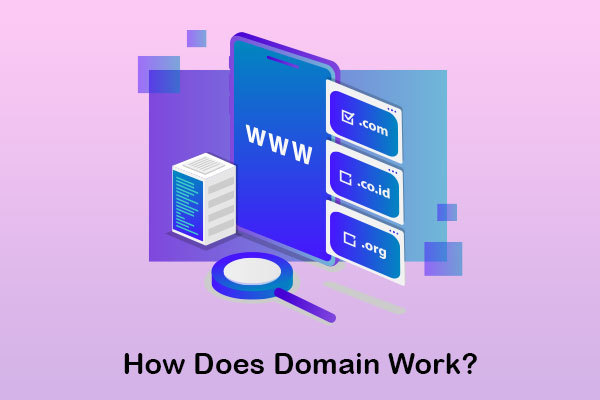
Once you enter the domain name, you will be taken to the DNS (Domain Name System) server. If the domain name is already in your cache, the IP address will be picked. If not, the DNS server will be contacted to figure out the IP address associated with the domain. The DNS server will then send back the IP address. After that, the IP address will be fetched, and the content related to it will be loaded on your browser.
The domain name servers contain the IP addresses of all websites on the internet. The hosting companies manage these servers.
The domain is the part of the URL that indicates the brand’s name. For this reason, it is recommended that you read the article ( what is URL ) to learn more.
If you want to know ” what is nft domain ” , this post can help you!
Types of Domain Names
There are multiple types of domain names that you can find. Let’s look at the most prominent types of domain names.
1- TLDs: Top-Level Domains
You can call Top-Level domains domain name extensions. It is possible to discover many different top-level domains on the internet. Out of them, .com is the most popular top-level domain. 52% of websites that you can find on the internet use these top-level domains. There is a high demand for websites with .com Top Level Domain. Hence, the price of such domains is high.
However, you can still consider going for another less popular domain extension, such as .online. You don’t have to spend a lot of money on it. Moreover, it will allow you to make your domain name look unique as well. You may find a list of all the legitimate Top Level Domains on the website of Internet Assigned Numbers Authority.
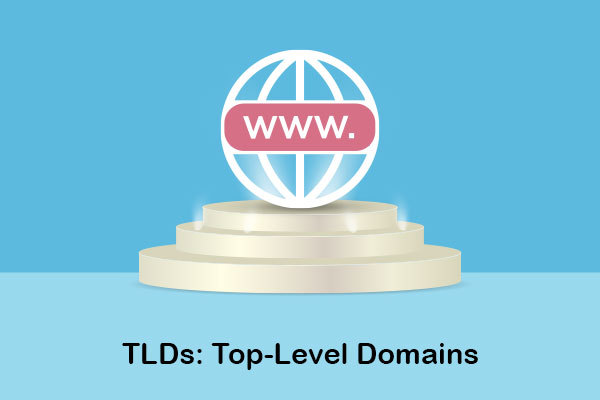
If you want to know hyphen in domain name this post can help you!
2- ccTLDs: Country-Code Top-Level Domains
Country-level domains are the extensions of domains specific to a country. It is made out of two letters based on international country codes. By looking at a country code top-level domain, it is possible to determine its belonging country. For example, websites in Brazil have the country-specific top-level domain .br, whereas Japan has .jp. If you are a company that focuses only on a specific country, it is excellent to proceed with a country-code top-level domain.
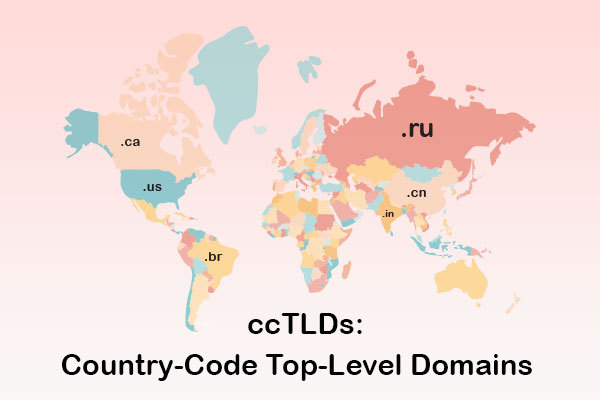
If you want to know subdomain definition this post can help you!
3- gTLDs: Generic Top Level Domains
The generic top-level domains are the domain extensions, which are not relying on country codes. There aren’t any specific criteria to get hold of a generic Top-Level Domain. However, particular extensions are backed up by designated organizations or agencies.
You will also notice that some of the generic Top Level Domains are restricted only to specific registrants. A perfect example of this is the .edu top-level domains. Only academic institutions are capable of using this top-level domain. Likewise, only the governmental agencies will be able to use the .gov top-level domain.
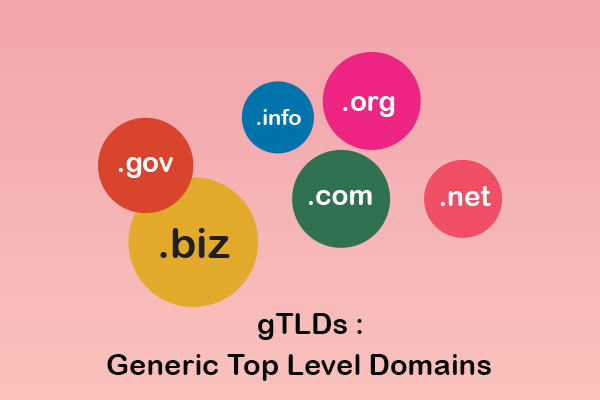
If you are looking for different types of domain extensions , visit this article!
Difference Between Domain and Hosting
You might know what domain is and what hosting is. Even though both are needed for hosting a website, you will notice some significant differences between them. We wrote this to share details on the differences between domain and hosting.
You will need web hosting and a domain to start a website. That’s because the domain name will contain the address and the hosting files. Both should work hand in hand to deliver the functionality of a website. To better understand that, you may consider your website as an apartment. There are different housing units in an apartment. These housing units are equivalent to various pages you have on the website. You will require to have landed to build the condo. Web hosting is the space you get on the internet for your website.
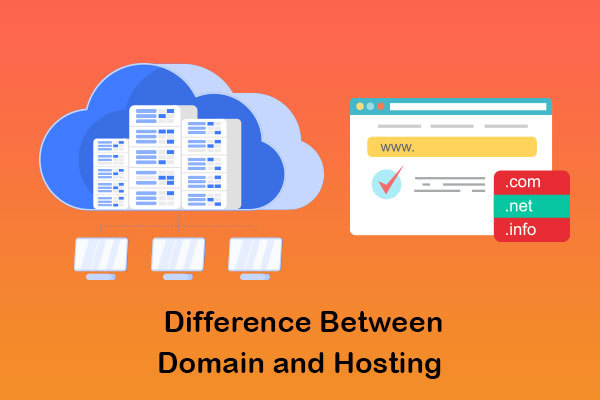
However, for visitors to visit your site, they must first know where to look. As we saw earlier in this article, you could potentially share your site’s IP with them and call it a day. On the other hand, we may communicate geographic coordinates instead of assigning names and numbers to each street and building. As you may have guessed, Domain names function as the address of your metaphorical residential complex.
You may take it a step further by adding a route after your domain name to guide users to a particular page of your website. The equivalent of adding an apartment number to your actual address is having something like “/blog” as an internet address.
Difference Between URL and Domain Name
Do you know what is a web domain all about? Some people tend to confuse it with URL. You can find multiple similarities between a URL (Universal Resource Locator) and a domain name. However, the true meanings of these two are different. A URL would direct a person to a specific page or a part of a website. The domain name would only be a part of the URL.
When you deep dive and take a look at a URL, you will figure out that it has a protocol, domain, as well as a path. The protocol defines whether the website has an SSL certificate or not. However, a URL would only have away if used to direct visitors to a specific website page. In other words, the home page URL of a website doesn’t have a path.
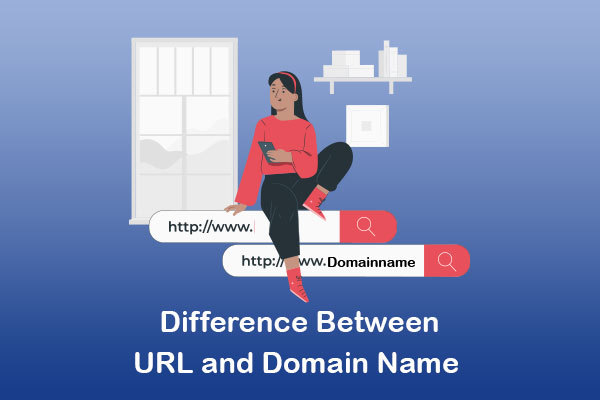
If you are looking for how to sell my domain name? This article can guide you!
How to Register a Domain
where to buy domain names? Before registering a domain name, you will need to look for an appropriate domain on the internet. It would help if you also kept in mind that popular domain names available for purchase on the internet are pretty expensive. If the domain you want to get is out of your budget, you may consider going ahead with a different Top-Level Domain. When you have that perfect domain, you can proceed to buy it. This is where you will notice that you have to enter some details on the checkout page. For example, you should pick a time duration for the domain name. You can also determine whether you need to hide your personal information from being visible on the WHOIS website.

Once you pay for the domain name, it will be all yours. In other words, the domain name will be registered under your details. Hence, you can set up the domain name on your hosting. Make sure that you include specific information and then finish the overall process. For example, you will be asked to enter your name, phone number, and postal address to register a domain name. Upon successful registration and setup, you can access the domain name via your hosting control panel.
If you need to know parked domain definition, this post can help you!
Conclusion
Now you have an excellent overall picture of what a domain name is all about. While keeping these facts in mind, you may buy a new domain name. Purchasing and configuring a domain name will not be complex as you know all the information you need to be aware of.
